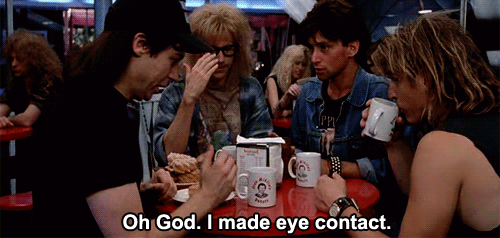This week, for the first time in ages, I cleared my email backlog. Much of the correspondence in the queue was questions for this column–several of which, fittingly, dealt with email etiquette. Herewith, a brief return to our Q&A advice format, answering some of your inbox conundrums.
I receive anywhere from five to 15 pitches from PR reps every day. Few and far between are pitches on topics or products I would actually write about. The vast majority of these emails are from strangers, on products or subjects that are tangentially related to our magazine’s coverage, but by and large nothing we would use or be interested in. Are editors required by the standards of common decency to respond to unsolicited, left-field pitches from strangers? –Not Really a Misanthrope

No, you’re not required to reply. And no, you’re not really a misanthrope. You don’t have to answer a single email. I think of all unsolicited correspondence–be it a text, a phone call, an email, an at-reply–as merely a request for contact. It’s up to me whether or not to reply. I can always just let the metaphorical phone ring to voicemail and never respond. You could also have a standard paragraph you cut and paste in reply. “Thanks for reaching out. I have received your message and if I’m interested in hearing from you further, I will be in touch. Otherwise, I ask that you respect my time and my inbox. Thanks.”
On a related note, feel free to unsubscribe from any PR or fellow journalists’ email newsletters–especially if you were added to the list without your consent.
Is it necessary to specify if a quote was received via email, a phone conversation, or in-person in an article? More specifically, if it’s an email quote? –Anonymous
If I were to make an interview-method pyramid, I’d put email conversation at the very top: use sparingly. The tech and journalism site 10,000 Words has a pretty good rundown of when it is and isn’t a good idea to conduct an interview over email. When it comes to letting readers know that you’ve only talked to a source via email, that’s a style question that varies by publication. I’d disclose this fact to your editor and let him or her make the call.
I’ve been fortunate to start working with an editor at a major publication. I’m super excited about the new gig and am really appreciative of the new opportunity. That said, In the short time I’ve started working with this editor, two people (one a complete stranger, one a source from one of my recent stories) have already approached me regarding contact info for sending in pitches to said publication. Do you have any advice as to how to handle these requests? Is it common practice to hand out an editors’ email to other people? –Jamie
If your number-one goal is maintaining a good relationship with your editor (which it should be), I’d ask him or her directly: Is it okay if I pass along your email address to other journalists who want to pitch you? If the journalist is going to name-drop you as a connection, anyway, you might as well be up front about it with your editor first.
You’re a journalist. Do you have your Gmail on lockdown? –my friend Aminatou Sow
I had to ask her what she meant. After all, I’m not a national security reporter. But, warns the Committee to Protect Journalists, “Many journalists feel that what they are doing is largely transparent, and that they have nothing to hide. But think about the dangers to sources if the information they have provided to you was more widely known. What may seem innocuous personal information to you might be incriminatory to others.”

How can you get your data all locked up and safe? Here’s an overview of the threats and options.
Ann Friedman is a magazine editor who loves the internet. She lives in Los Angeles
